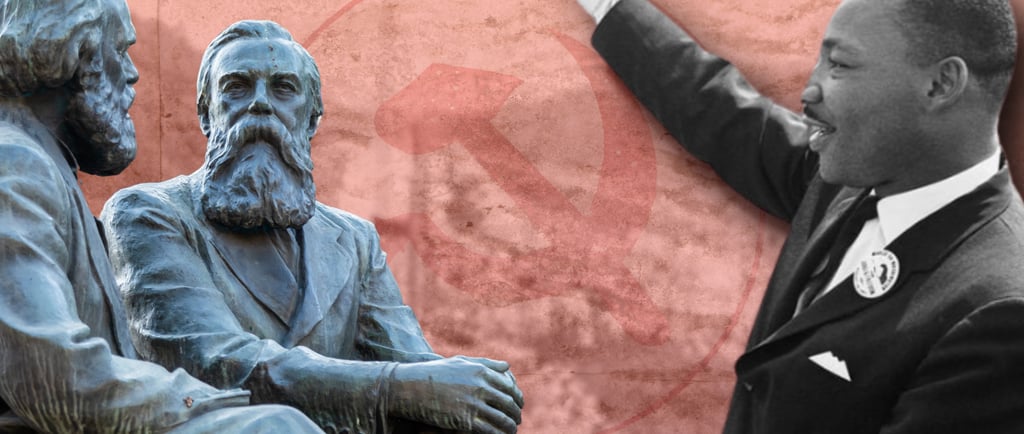Marxist MLK Leads The Cause of Black-American Destruction
MLK's influence has been felt for decades, but has that influence been helpful?
SDH
4/24/20241 min read


MLK’s legacy endures across generations. However, is the true legacy we learn about in school or observe on his day the same one? Many historians argue, "No, it is not." The genuine legacy is often viewed as one intertwined with Marxism and marked by hypocrisy. MLK utilized his position in the church as a platform to propagate his subversive ideas within the Black community. Few historical figures have been as misrepresented as he has been.
The Black community in America experienced numerous successes before the emergence of organizations like the NAACP or the adoption of the belief in state reliance for solutions. There were many success stories akin to Booker T. Washington's. Over time, however, the Black community appeared to veer toward dependency on Big Government, following the path laid out by W. E. B. Du Bois. If MLK had such a transformative impact on the Black community, why did indicators of hardship increase afterward? Issues like single-parent households, poverty, moral decay, and a decline in religious faith all worsened. MLK, with his eloquent advocacy of Marxist beliefs, is seen as having led the Black community astray from the path to success.
The truly devout should have aimed to desegregate rather than forcibly integrate. Those who comprehend God’s message understand the importance of building the community from within and not relying on the handouts of Big Government. Manning Johnson, in his book "Color Communism and Common Sense," warned against the dangers of embracing modern Marxist ideals like Democratic Socialism, cautioning that the more we accept from Uncle Sam, the more we become ensnared by these ideals. Can the Black community recover from the impacts of figures like MLK?
